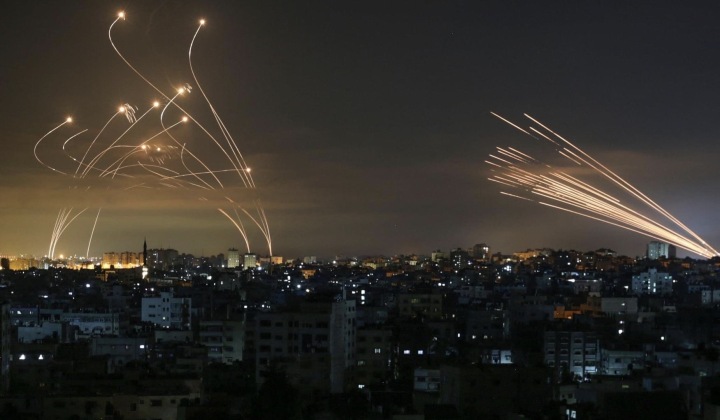News
Israel Concerned as Modern Weapons Sent to Ukraine End Up in Mideast Militants’ Hands: Netanyahu Rules Out Iron Dome Sales
Israel has increasingly raised concerns that the hundreds of billions of dollars worth of armaments being sent to Ukraine are ending up in the hands of third parties outside the country, with Prime Minister Benjamin Netanyahu warning that arms sent by NATO member states have appeared in the hands of militants near Israel’s borders. Netanyahu stated to this effect on June 23 that his government “have concerns that any systems that we give to Ukraine would be used against us because they could fall into Iranian hands and be used against us.” “And by the way, that’s not a theoretical possibility. It actually happened with the Western anti-tank weapons that we now find at our borders. So we have to be very careful here,” he added. These warnings have been raised as Tel Aviv has faced growing pressure from across the Western world, as well as from Kiev, to supply arms to support the Ukrainian war effort, with Arab states Morocco and Jordan already having complied with Western requests in this regard. Kiev has been particularly outspoken in its criticism of Tel Aviv’s position, with the Ukrainian embassy in the country slamming Israel’s “complete inaction in providing Ukraine with defensive assistance over the past one-and-a-half years,” which was in line with a longstanding trend in Ukrainian and broader Western rhetoric towards equating neutral positions in the conflict with siding with Russia.

On June 29 Prime Minister Netanyahu further highlighted that there was a significant risk that any Israeli weapons sent to Ukraine could quickly end up in the hands of Iran and its partners through black markets, which was in line with multiple reports that significant quantities of the arsenals being sent to the Eastern European country have been sold on by Ukrainian officials. Regarding the Iron Dome air defence system in particular, which provides a short range defence capability against assets such as rocket artillery, the prime minister stated: “I think, it’s important to understand that we are concerned also with the possibility that systems that we would give to Ukraine would fall into Iranian hands.” He stressed that should this happen Iran would be able to use its technologies against Israel and develop better countermeasures against its defences. “Now, if that system would fall in the hands of Iran, then millions of Israelis would be left defenceless and in peril,” he stated. Netanyahu’s statements come has Israel has faced increasingly unfavourable coverage in media across the Western world for refraining to fall in line with Western positions against both Russia and China amid an increasingly polarised geopolitical situation. Other than Jordan, Morocco and NATO member Turkey which have armed Ukraine, and Iran and Syria which have armed or otherwise supported Russia, the large majority of states in the Middle East and North Africa have refrained from taking sides in the ongoing war. Western states have frequently equated this neutrality, including Gulf states’ unwillingness to increase oil output to reduce Russian oil revenues in coordination with Western sanctions, with siding with Moscow.












